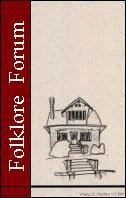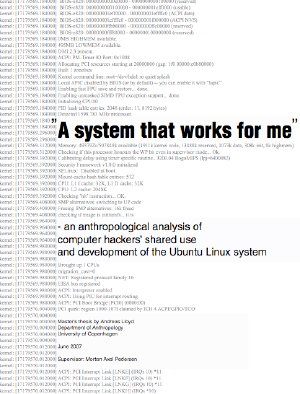Anthropology of anthropology: How do anthropologists form online communities? How are open access publishing and other developments that have sprung up online changing community boundaries? Soon, an anthropologist will do fieldwork among us online anthropologists. http://nodivide.wordpress.com/ is the address of the blog by anthropologist Owen Wiltshire, grad student at Concordia University, Montreal, where he writes:
I am interested in collaborative research methods, and the growth of anthropology online. (…) I’m particularly interested in open-access journals, and feel that opening up academic publishing is an enormously important step for anthropology.
(…)
Delving into the interesting colonial history of anthropology, and into discussions of globalization and neoliberal economic injustice, it’s pretty easy to see how it makes sense to make anthropological work freely available to the world that it studies.
In this way I’ll be exploring ways to study online communities – in this case communities of anthropologists. Its an exciting time for anthropology online. I’ve been following anthropology blogs for a year now, and its amazing how fast its growing. Its quite inspiring, and I think reflects a very vibrant community thats just itching to work (and fight) with each other!
So while my research proposal is extremely vague, and I’ve been made aware of this, I’m absolutely confident that the internet, blogs, and the desire to liberate anthropological knowledge from the world economy are fueling a change in anthropology, and that within this excitement I’ll find an interesting “field” of study.
In an email to me he tells that he’ll be handing in a proposal in April and hopefully be doing fieldwork over the summer. He has already been investigating the ways faculty at Concordia University use the internet in classroom, and is working on getting access to an anthropological journal to investigate the publishing world “face to face”.
Owen Wiltshire worked as a web developer for a number of years prior to studying anthropology: “I’ve always followed developments in open source – so I’m excited to see how similar developments work their way into academic culture”, he writes.
>> visit Owen Wiltshire’s blog “Just another anthro blog”
SEE ALSO:
Interview with Michael Wesch: How collaborative technologies change scholarship
antropologi.info survey: Six anthropologists on Anthropology and Internet
Anthropology of anthropology: How do anthropologists form online communities? How are open access publishing and other developments that have sprung up online changing community boundaries? Soon, an anthropologist will do fieldwork among us online anthropologists. http://nodivide.wordpress.com/ is the address of…



